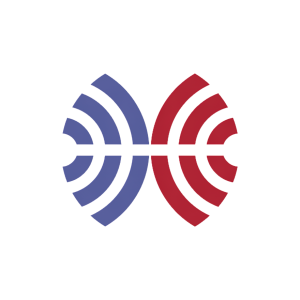First Patient Treated with Adaptimmune's TECELRA(R) (afamitresgene autoleucel)
Rhea-AI Summary
Adaptimmune Therapeutics has announced the treatment of its first patient with TECELRA® at Moffitt Cancer Center. This marks a significant milestone as TECELRA becomes the first FDA-approved engineered cell therapy for solid tumor cancer in the U.S., specifically for synovial sarcoma.
The FDA granted accelerated approval in August 2024 for TECELRA to treat adults with unresectable or metastatic synovial sarcoma who meet specific criteria, including prior chemotherapy and certain genetic markers. The treatment network includes several Authorized Treatment Centers across the US, with plans to expand to approximately 30 centers by the end of 2025, covering 80% of patients in sarcoma centers of excellence.
Positive
- None.
Negative
- None.
News Market Reaction 1 Alert
On the day this news was published, ADAP declined 3.43%, reflecting a moderate negative market reaction.
Data tracked by StockTitan Argus on the day of publication.
Dosing marks a milestone for first engineered cell therapy approved in the U.S. for a solid tumor cancer, synovial sarcoma
Philadelphia, Pennsylvania and Oxford, United Kingdom--(Newsfile Corp. - December 2, 2024) - Adaptimmune Therapeutics plc (NASDAQ: ADAP), a company working to redefine the treatment of solid tumor cancers with cell therapy, today announced that the first patient has been treated with TECELRA® (afamitresgene autoleucel). TECELRA is the first engineered cell therapy for a solid tumor cancer approved in the U.S., and the first new therapy option in more than a decade for synovial sarcoma, a rare, soft tissue cancer that most commonly impacts young adults. The patient was treated at Moffitt Cancer Center, one of Adaptimmune's Authorized Treatment Centers (ATCs) and a leader in sarcoma research and treatment.
In August 2024, the U.S. Food and Drug Administration (FDA) granted accelerated approval of TECELRA for the treatment of adults with unresectable or metastatic synovial sarcoma who have received prior chemotherapy, are HLA-A*02:01P, -A*02:02P, -A*02:03P, or -A*02:06P positive and whose tumor expresses the MAGE-A4 antigen as determined by FDA-approved or cleared companion diagnostic devices. This indication is approved under accelerated approval based on overall response rate and duration of response. Continued approval for this indication may be contingent upon verification and description of clinical benefit in a confirmatory trial.
Adrian Rawcliffe, Adaptimmune's Chief Executive Officer:
"Dosing our first commercial TECELRA patient, in partnership with one of the top cancer centers in the U.S., is an incredible milestone for the sarcoma community and for Adaptimmune. We are focused now on reaching as many eligible synovial sarcoma patients as possible with this one-time infusion treatment as well as advancing our broader sarcoma franchise as we aim to ultimately redefine the way cancer is treated."
Mihaela Druta, MD, Medical Oncologist and Vice Chair of the Sarcoma Department, Sarcoma Medical Oncology at Moffitt Cancer Center; SPEARHEAD-1 Trial Investigator:
"Synovial sarcoma is a particularly devastating type of cancer, affecting many patients in the primes of their lives with poor prognosis for those who fail first-line treatment. Despite this outlook, in the last decade we have seen no new, effective treatments become available to patients. TECELRA's one-time infusion treatment provides a much-needed option to patients with unresectable or metastatic synovial sarcoma, offering a novel therapeutic approach to treatment as well as a new found sense of hope for patients and their loved ones."
Several Authorized Treatment Centers (ATCs) are accepting referrals across the US where patients and healthcare providers can initiate the TECELRA treatment journey. Adaptimmune is confident the full ATC network of approximately 30 ATCs will be active by the end of 2025, covering an estimated
About Synovial Sarcoma
There are more than 50 different types of soft tissue sarcomas which are categorized by tumors that appear in fat, muscle, nerves, fibrous tissues, blood vessels, or deep skin tissues.1 Synovial sarcoma accounts for approximately 5 to
About TECELRA
TECELRA® (afamitresgene autoleucel) is a melanoma-associated antigen A4 (MAGE-A4)-directed genetically modified autologous T cell immunotherapy indicated for the treatment of adults with unresectable or metastatic synovial sarcoma who have received prior chemotherapy, are HLA-A*02:01P, -A*02:02P, -A*02:03P, or -A*02:06P positive and whose tumor expresses the MAGE-A4 antigen as determined by FDA-approved or cleared companion diagnostic devices.
This indication is approved under accelerated approval based on overall response rate and durability of response. Continued approval for this indication may be contingent upon verification and description of clinical benefit in a confirmatory trial.
IMPORTANT SAFETY INFORMATION
CONTRAINDICATION: DO NOT use TECELRA in adults who are heterozygous or homozygous for HLA-A*02:05P.
BOXED WARNING: Cytokine release syndrome (CRS), which may be severe or life-threatening, occurred in patients receiving TECELRA. At the first sign of CRS, immediately evaluate patient for hospitalization and institute treatment with supportive care. Ensure that healthcare providers administering TECELRA have immediate access to medications and resuscitative equipment to manage CRS.
CRS
- CRS occurred in
75% of patients (2% Grade ≥3) with a median onset of 2 days (range: 1 to 5 days) and median resolution of 3 days (range: 1 to 14 days). CRS (including Grade 1) was managed with tocilizumab in55% of patients who experienced CRS. - In patients who experienced CRS, the most common symptoms included fever, tachycardia, hypotension, nausea/vomiting, and headache.
Immune Effector Cell-associated Neurotoxicity Syndrome (ICANS)
- ICANS has been observed following administration of TECELRA. One patient (
2% ) had Grade 1 ICANS with a median onset of 2 days and resolution of 1 day. - ICANS symptoms can include mental status changes, disorientation to time and place, drowsiness, inattention, altered level of consciousness, seizures, cerebral edema, impairment of cognitive skills, progressive aphasia, and motor weakness.
- Advise patients to refrain from driving and engaging in hazardous occupations or activities, such as operating heavy machinery or potentially dangerous machinery for 4 weeks following infusion due to the potential for neurologic events, including dizziness and presyncope.
Monitoring for CRS and ICANS During and Following TECELRA Infusion
- Ensure that healthcare providers administering TECELRA have immediate access to medications and resuscitative equipment to manage CRS and ICANS. Ensure patients are euvolemic prior to initiating TECELRA.
- During and following TECELRA administration, closely monitor patients for signs and symptoms of CRS and ICANS. Following treatment with TECELRA, monitor patients for at least 7 days at the healthcare facility. Continue to monitor patients for at least 4 weeks following treatment with TECELRA. Counsel patients to seek medical attention should signs or symptoms of CRS or ICANS occur.
- At the first sign of CRS or ICANS, immediately evaluate patients for hospitalization and administer supportive care based on severity and consider further management per clinical practice guidelines.
Prolonged Severe Cytopenia
- Anemia, neutropenia, and/or thrombocytopenia can occur for several weeks following lymphodepleting chemotherapy and TECELRA infusion. Patients with Grade ≥3 cytopenia not resolved by week 4 included anemia (
9% ), neutropenia (11% ), and thrombocytopenia (5% ). The median time to resolution was 7.3 weeks (range: 6.1 to 8.4 weeks) for anemia, 9.3 weeks (range: 6.4 to 12.3 weeks) for neutropenia, and 6.3 weeks (range: 6.1 to 6.4 weeks) for thrombocytopenia. - Monitor blood counts after TECELRA infusion. Manage cytopenia with growth factor and blood product transfusion according to clinical practice guidelines.
Infections
- Infections may occur following lymphodepleting chemotherapy and TECELRA infusion and occurred in
32% of patients (14% Grade 3). - Do not administer TECELRA to patients with active infections and/or inflammatory disorders.
- Monitor patients for signs and symptoms of infection before and after TECELRA infusion and treat patients appropriately.
- Febrile neutropenia was observed in patients after TECELRA infusion and may be concurrent with CRS. In the event of febrile neutropenia, evaluate for infection and manage with broad-spectrum antibiotics, fluids, and other supportive care, as medically indicated.
- Viral reactivation has occurred in patients following TECELRA. Perform screening for Epstein-Barr virus, cytomegalovirus, hepatitis B virus, hepatitis C virus, and human immunodeficiency virus (HIV) or any other infectious agents if clinically indicated. Consider antiviral therapy to prevent viral reactivation per local guidelines.
Secondary Malignancies
- Patients treated with TECELRA may develop secondary malignancies or recurrence of their cancer. Monitor for secondary malignancies.
Hypersensitivity Reactions
- Serious hypersensitivity reactions, including anaphylaxis, may occur due to dimethyl sulfoxide (DMSO) in TECELRA. Observe patients for hypersensitivity reactions during infusion.
Potential for HIV Nucleic Acid Test False-Positive Results
- The lentiviral vector used to make TECELRA has limited, short spans of genetic material that are identical to HIV. Therefore, some commercial HIV nucleic acid tests may yield false-positive results in patients who have received TECELRA.
Adverse Reactions
- Most common adverse reactions (incidence ≥
20% ) are CRS, nausea, vomiting, fatigue, infections, pyrexia, constipation, dyspnea, abdominal pain, non-cardiac chest pain, decreased appetite, tachycardia, back pain, hypotension, diarrhea, and edema. - Most common Grade 3 or 4 laboratory abnormalities (incidence ≥
20% ) were lymphocyte count decreased, neutrophil count decreased, white cell blood count decreased, red blood cell decreased, and platelet count decreased. - Most common serious adverse reactions (≥
5% ) were CRS and pleural effusion.
Please see full Prescribing Information, including Boxed Warning and Medication Guide.
About AdaptimmuneAssist
An integrated support program, AdaptimmuneAssist is now available to provide access support for patients, their caregivers, and healthcare providers throughout the TECELRA treatment journey. AdaptimmuneAssist includes connection with a Treatment Navigator, travel and financial support programs for eligible patients, and access to the AdaptimmuneAssist Order Portal (for healthcare providers only). For more information, physicians and patients may call 1-855-246-9232.
About Adaptimmune
Adaptimmune is a fully integrated cell therapy company working to redefine how cancer is treated. With its unique engineered T cell receptor (TCR) platform, the Company is developing personalized medicines designed to target and destroy difficult-to-treat solid tumor cancers and to radically improve the patient's cancer treatment experience.
Forward-Looking Statements
This release contains "forward-looking statements" within the meaning of the Private Securities Litigation Reform Act of 1995 (PSLRA). These forward-looking statements involve certain risks and uncertainties. Such risks and uncertainties could cause our actual results to differ materially from those indicated by such forward-looking statements, and include, without limitation: the success, cost and timing of our product development activities and clinical trials and our ability to successfully advance our TCR therapeutic candidates through the regulatory and commercialization processes. For a further description of the risks and uncertainties that could cause our actual results to differ materially from those expressed in these forward-looking statements, as well as risks relating to our business in general, we refer you to our Annual Report on Form 10-K filed with the Securities and Exchange Commission for the year ended 31 December, 2023, our Quarterly Reports on Form 10-Q, Current Reports on Form 8-K, and other filings with the Securities and Exchange Commission. The forward-looking statements contained in this press release speak only as of the date the statements were made and we do not undertake any obligation to update such forward-looking statements to reflect subsequent events or circumstances.
1. "What is a Soft Tissue Sarcoma?" American Cancer Society. https://www.cancer.org/cancer/types/soft-tissue-sarcoma/about/soft-tissue-sarcoma.html. Accessed June 24, 2024.
2. "Soft Tissue Sarcoma." Cleveland Clinic. https://my.clevelandclinic.org/health/diseases/21732-soft-tissue-sarcoma. Accessed June 6, 2024.
3. "Synovial Sarcoma." National Cancer Institute. https://www.cancer.gov/pediatric-adult-rare-tumor/rare-tumors/rare-soft-tissue-tumors/synovial-sarcoma. Accessed June 5, 2024.
4. Aytekin MN, Öztürk R, Amer K, et al. Epidemiology, incidence, and survival of synovial sarcoma subtypes: SEER database analysis. J Orthop Surg (Hong Kong). 2020;28(2):1-12.
Investor Relations
Juli P. Miller, Ph.D. - VP, Corporate Affairs and Investor Relations
T : +1 215 825 9310
M : +1 215 460 8920
Juli.Miller@adaptimmune.com
Media Relations
Dana Lynch, Senior Director of Corporate Communications
M: +1 267 990 1217
Dana.Lynch@adaptimmune.com
###

To view the source version of this press release, please visit https://www.newsfilecorp.com/release/232151







